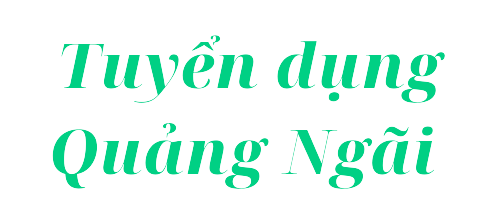The Ethics of Farming Facebook Accounts
The Implications of Facebook Data Harvesting
In today’s digital landscape, the ethics of farming Facebook accounts have come under intense scrutiny. As individuals, we entrust platforms like Facebook with our personal information, unaware of the facebook data harvesting practices that may be taking place behind the scenes. This raises serious online privacy concerns as our data is collected, analyzed, and potentially exploited without our explicit consent.
Moreover, the implications of social media manipulation through the farming of Facebook accounts are far-reaching. By leveraging sophisticated algorithms, malicious actors can target vulnerable users and manipulate their online behavior for personal gain. This not only violates the trust placed in social media platforms but also poses a threat to the integrity of online interactions.
Furthermore, the algorithm exploitation involved in farming Facebook accounts raises questions about the ethical responsibility of tech companies. While automation tools like those offered by autobotsoft.com may streamline processes, they also have the potential to be misused for nefarious purposes, amplifying the ethics of facebook farming debate.
Key Features:
- Highlighting the ethical concerns surrounding data harvesting on Facebook
- Exploring the impact of social media manipulation on user trust
- Examining the role of algorithms in online privacy violations
Exploring the Ethics of Farming Facebook Accounts
In today’s digital landscape, the practice of farming Facebook accounts has raised significant ethical concerns. As individuals, we entrust social media platforms with our personal information, preferences, and online behaviors. However, the ethics of Facebook farming come into question when third-party entities exploit this data for their gain.
One of the primary issues at hand is Facebook data harvesting, where user data is collected without consent or transparency. This data can be used for targeted advertising, content manipulation, and even influencing public opinion. The manipulation of user data raises serious online privacy concerns, as individuals lose control over their personal information and digital footprint.
Moreover, social media manipulation is a direct result of farming Facebook accounts. By leveraging algorithms and user data, malicious actors can create tailored content to sway public perception or spread misinformation. This not only undermines the authenticity of online interactions but also poses a threat to democratic processes.
The Impact of Algorithm Exploitation
Algorithm exploitation is a key component of Facebook farming, where algorithms are used to target specific user groups with tailored content. This raises questions about the ethical boundaries of using sophisticated algorithms to manipulate user behavior and influence online engagement.
As we navigate the complexities of ethics of Facebook farming, it is essential to recognize the impact it has on our digital society. By promoting transparency, advocating for data privacy rights, and holding platforms accountable, we can strive towards a more ethical and responsible online environment.
Pricing Table
Conclusion
After delving into the ethics of farming Facebook accounts and the implications of Facebook data harvesting, it has become clear that the online privacy concerns surrounding social media manipulation and algorithm exploitation are more pressing than ever. As I navigated through the complexities of this issue, it is evident that the use of software like the one offered at autobotsoft.com raises significant ethical questions. The convenience and efficiency of automating tasks on social media platforms must be weighed against the potential consequences of exploiting algorithms and harvesting data from Facebook accounts without explicit consent.
In a digital society where personal information is constantly at risk, it is crucial to prioritize ethical practices and respect online privacy. The debate surrounding the ethics of Facebook farming is ongoing, and it is essential for individuals and companies alike to consider the implications of their actions on social media. While automation tools may offer convenience, they also have the power to manipulate user data and exploit online platforms for personal gain.
As I conclude my exploration of this contentious issue, I am left pondering the balance between innovation and ethical responsibility in the realm of social media. It is my hope that by shedding light on the ethical implications of Facebook account farming, we can collectively strive towards a more transparent and ethically-driven digital landscape.
FAQ
As I delve deeper into the farming Facebook accounts and the ethics of Facebook farming, I have compiled a list of frequently asked questions that shed light on the intricacies of this topic:
1. What are the potential consequences of Facebook data harvesting?
Facebook data harvesting involves the collection of user information for various purposes, such as targeted advertising and algorithm optimization. However, this practice raises online privacy concerns as it can lead to unauthorized access to personal data and the potential for social media manipulation. By exploiting algorithms to gather user data, entities can engage in targeted marketing or even influence public opinion without consent.
2. How do we navigate the ethics of farming Facebook accounts?
When it comes to the ethics of farming Facebook accounts, it is essential to consider the online privacy concerns and potential ramifications of algorithm exploitation. As users, we must be vigilant about the information we share online and stay informed about how our data is being utilized. By being mindful of our digital footprint, we can minimize the risks associated with Facebook data harvesting and protect our privacy.
3. What steps can individuals take to protect their online privacy?
Individuals can take proactive measures to safeguard their online privacy in light of Facebook data harvesting and social media manipulation. By reviewing and adjusting privacy settings on social media platforms, limiting the amount of personal information shared online, and being cautious of third-party applications, users can mitigate the risks of ethics of Facebook farming. Additionally, staying informed about data privacy laws and advocating for stronger regulations can help protect individuals from potential exploitation.
